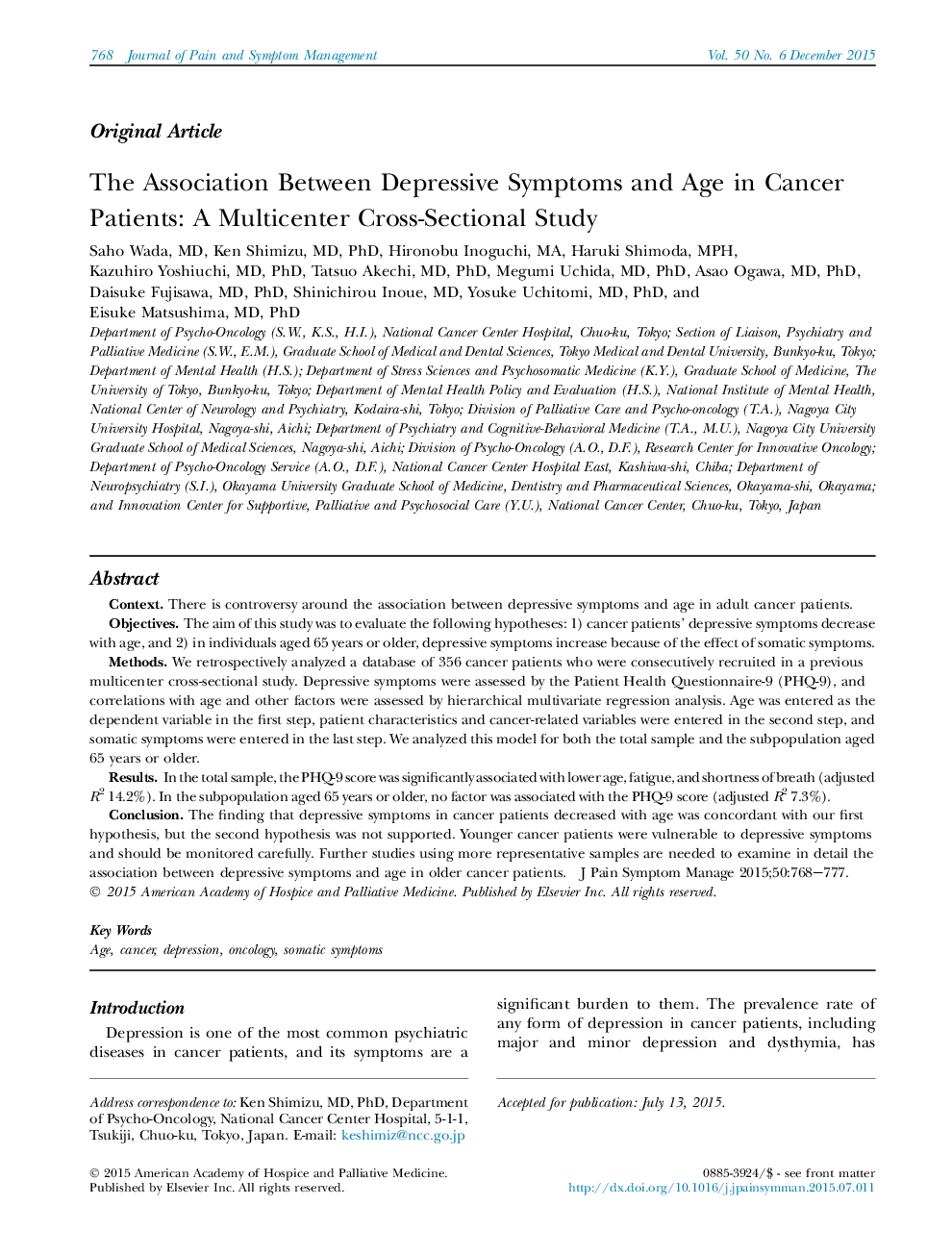| Article ID | Journal | Published Year | Pages | File Type |
|---|---|---|---|---|
| 5879578 | Journal of Pain and Symptom Management | 2015 | 10 Pages |
ContextThere is controversy around the association between depressive symptoms and age in adult cancer patients.ObjectivesThe aim of this study was to evaluate the following hypotheses: 1) cancer patients' depressive symptoms decrease with age, and 2) in individuals aged 65 years or older, depressive symptoms increase because of the effect of somatic symptoms.MethodsWe retrospectively analyzed a database of 356 cancer patients who were consecutively recruited in a previous multicenter cross-sectional study. Depressive symptoms were assessed by the Patient Health Questionnaire-9 (PHQ-9), and correlations with age and other factors were assessed by hierarchical multivariate regression analysis. Age was entered as the dependent variable in the first step, patient characteristics and cancer-related variables were entered in the second step, and somatic symptoms were entered in the last step. We analyzed this model for both the total sample and the subpopulation aged 65 years or older.ResultsIn the total sample, the PHQ-9 score was significantly associated with lower age, fatigue, and shortness of breath (adjusted R2 14.2%). In the subpopulation aged 65 years or older, no factor was associated with the PHQ-9 score (adjusted R2 7.3%).ConclusionThe finding that depressive symptoms in cancer patients decreased with age was concordant with our first hypothesis, but the second hypothesis was not supported. Younger cancer patients were vulnerable to depressive symptoms and should be monitored carefully. Further studies using more representative samples are needed to examine in detail the association between depressive symptoms and age in older cancer patients.
